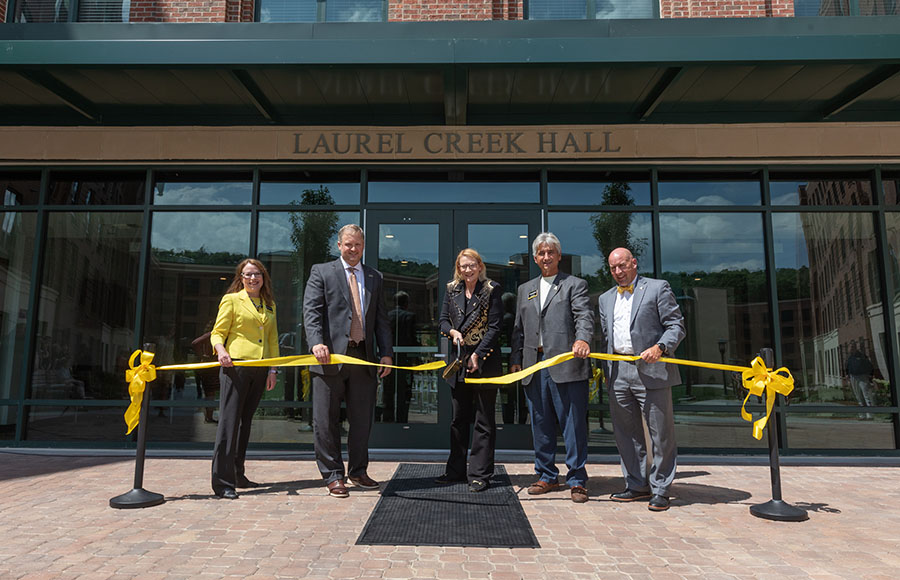
Appalachian State University Chancellor Sheri Everts, center, cuts the ribbon on App State’s Laurel Creek Residence Hall July 30. Pictured with Everts, from left to right, are Heather Hulburt Norris, App State provost and executive vice chancellor; Jeremy Doss, senior vice president for development at RISE: A Real Estate Company; Thomas Sofield, representing the App State Board of Trustees; and J.J. Brown, App State vice chancellor for student affairs. Photo by Chase Reynolds
BOONE, N.C. — Mountaineers moving into App State’s Laurel Creek Hall this month will enjoy suite- and apartment-style living in a new student residence built with community and sustainability in mind.
On July 30, Chancellor Sheri Everts hosted a ribbon-cutting ceremony at the 151,861-square-foot, 640-bed residence hall completed by RISE: A Real Estate Company, on time and under budget. Laurel Creek Hall is the third of four new residence halls to be constructed as part of a major three-phase housing project near Kidd Brewer Stadium.
“This residence hall, and the many other projects in progress on our campus, represent the future of App State,” Everts said at the event. “At a time when the focus has been very much on the day to day, we also have our sights on the horizon — anticipating the needs of the Appalachian Community and planning for generations of Mountaineers to come.”
A signature feature of Laurel Creek Hall is its 14,400-square-foot courtyard, a green space connecting the building to Raven Rocks and Thunder Hill residence halls, which opened in August 2020. The area includes a hammock garden where students can relax in hammocks or test their balance on slacklines.
Jeremy Doss, senior vice president for development at RISE, and J.J. Brown, App State vice chancellor for student affairs, joined Everts in addressing guests at the ceremony.
Brown said the new residence halls “truly change the landscape of our community and our living environment for our students.” With thoughtfully designed lobbies, lounges, study rooms, a multipurpose room and a kitchen, students will find space for quiet study, hosting events and socializing with new friends.
The building is named for Laurel Creek, which flows from Beech Mountain into the Watauga River. Naming campus buildings and spaces after local geography, geology and biology helps Mountaineer students build a stronger connection with the surrounding region.
“The creek features a waterfall and swimming area that are quite popular with our students,” Everts said. “Many of our students chose App State, in part, because of our stunning location, and we take every opportunity to honor this beautiful area and its landmarks.”
The chancellor noted the university’s commitment to being a good steward of its resources and of the environment, and added the residence hall was built according to Green Built Alliance standards, with certification anticipated in the future.
Sustainable features of the building and the construction process include:
- Air sealing and insulation.
- Tree planting and repurposing.
- Energy- and water-efficient appliances.
- LED lighting.
- Automated systems.
- Sustainable materials that meet stringent indoor air quality standards.
In his remarks, Doss thanked App State leaders and the project team for their partnership with RISE, the developer for the housing project.
“To think, just three years ago, this was a surface parking lot. It’s truly a transformation here,” Doss said.
The opening of Laurel Creek Hall completes Phase 2 of App State’s ongoing major housing project that, when completed, will replace seven residence halls: Bowie, Coltrane, Eggers, Gardner, Winkler, Justice and East. The final phase of the project is New River Hall, which is under construction and scheduled to open in fall 2022.
The $191 million project will provide approximately 2,300 beds — including a net gain of 500 beds — in three phases, while also adding better, more efficient parking.
Read more about these and other construction projects on App State’s campus.
What do you think?
Share your feedback on this story.
About Appalachian State University
As a premier public institution, Appalachian State University prepares students to lead purposeful lives. App State is one of 17 campuses in the University of North Carolina System, with a national reputation for innovative teaching and opening access to a high-quality, cost-effective education. The university enrolls more than 21,000 students, has a low student-to-faculty ratio and offers more than 150 undergraduate and 80 graduate majors at its Boone and Hickory campuses and through App State Online. Learn more at https://www.appstate.edu.
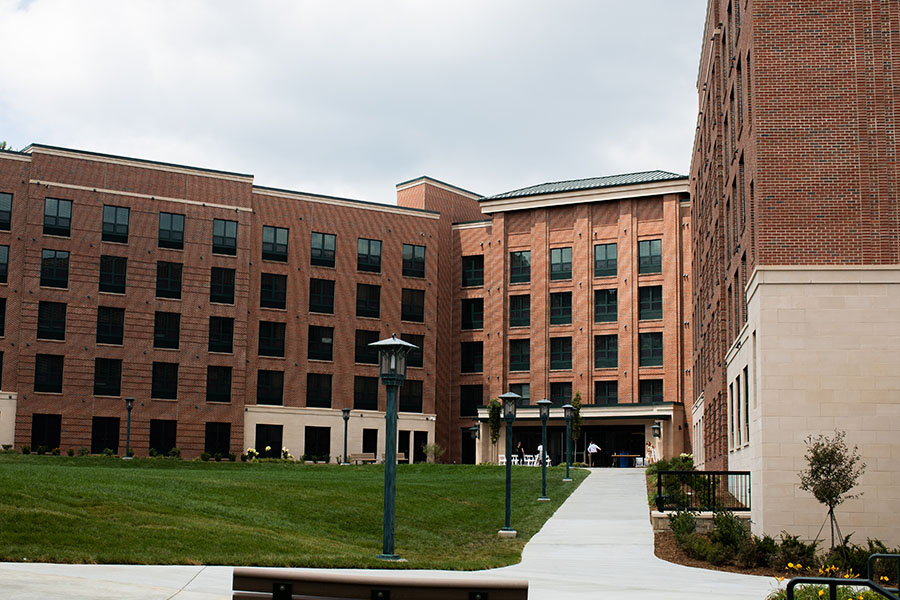
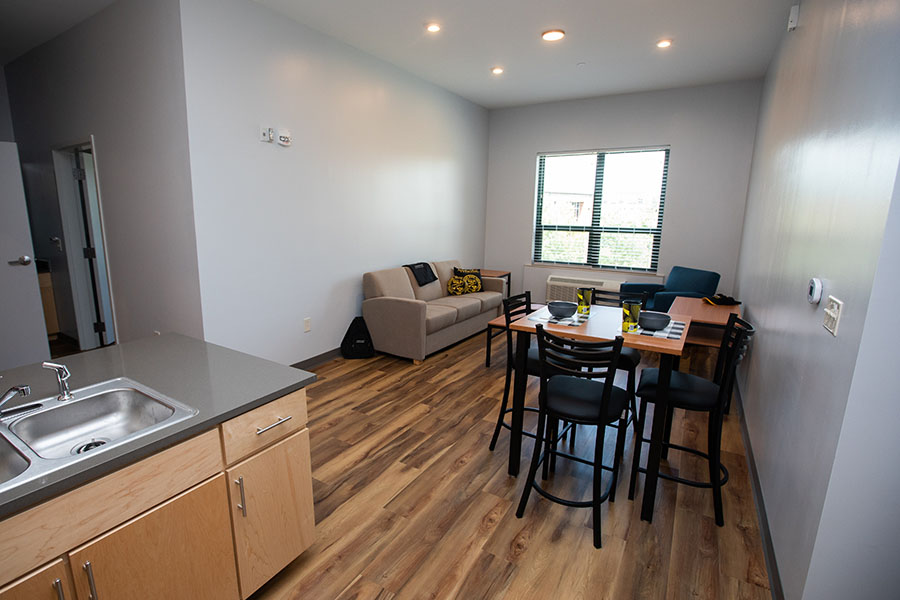

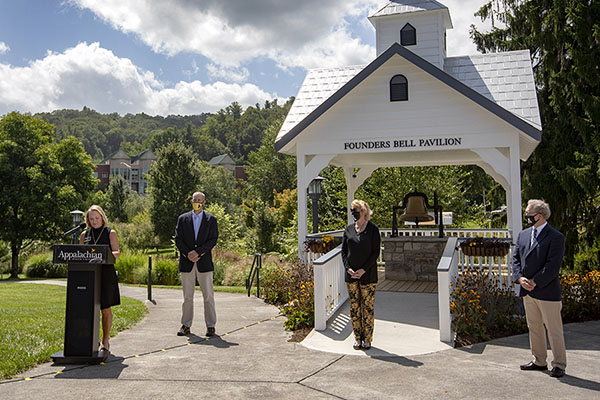
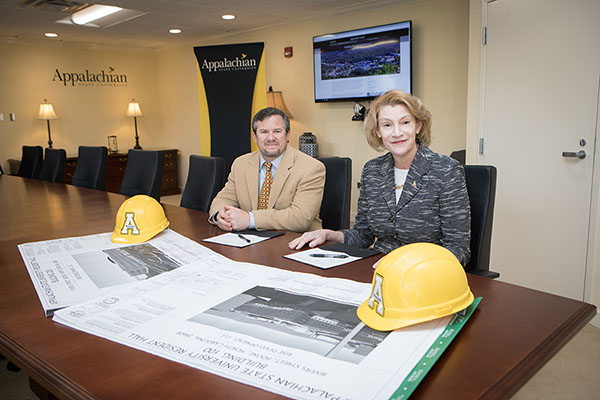



![How NCInnovation Is Rethinking Economic Development in North Carolina [faculty featured]](/_images/_posts/2026/02/rethinking-economic-development-600x400.jpg)







